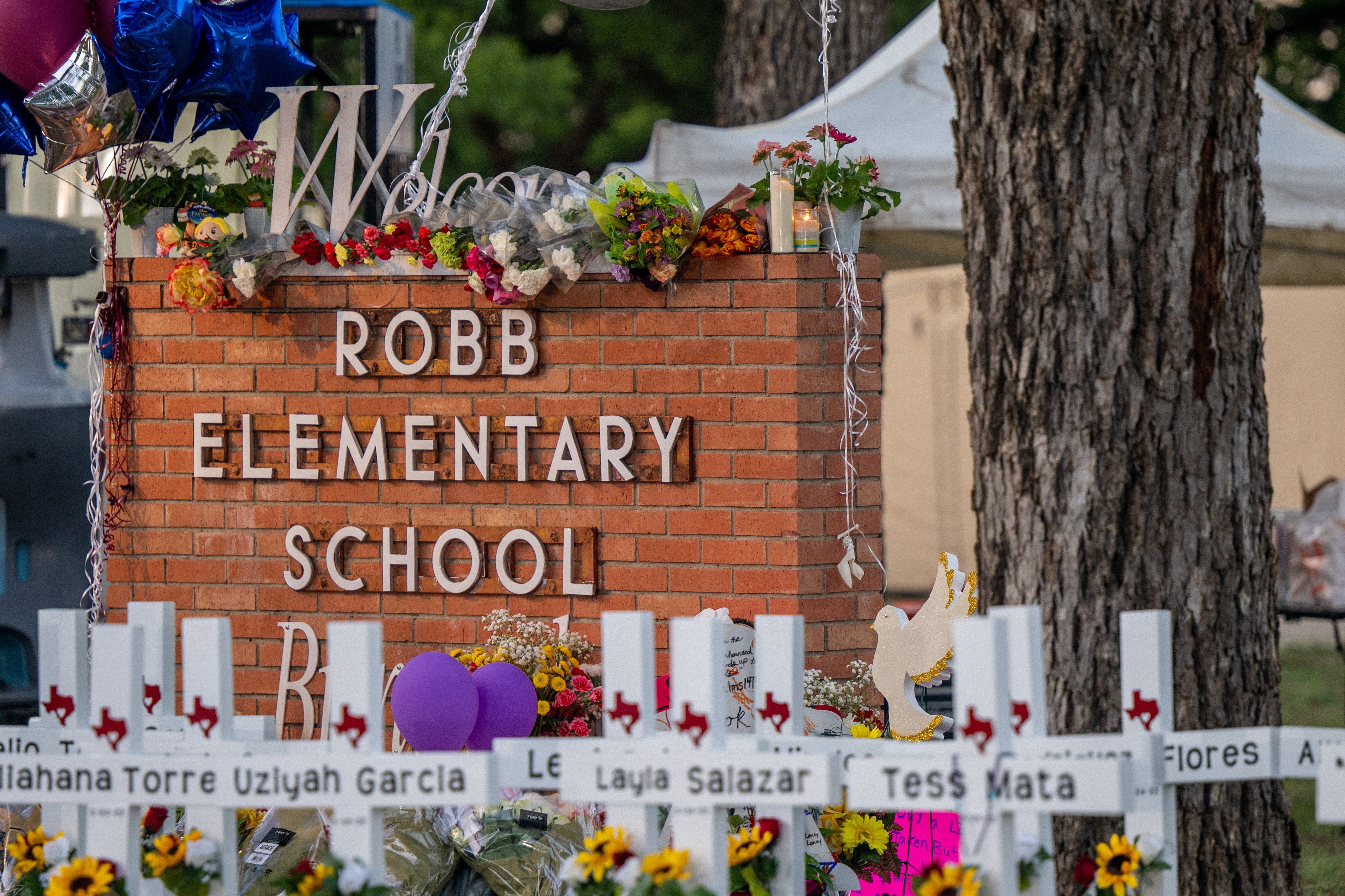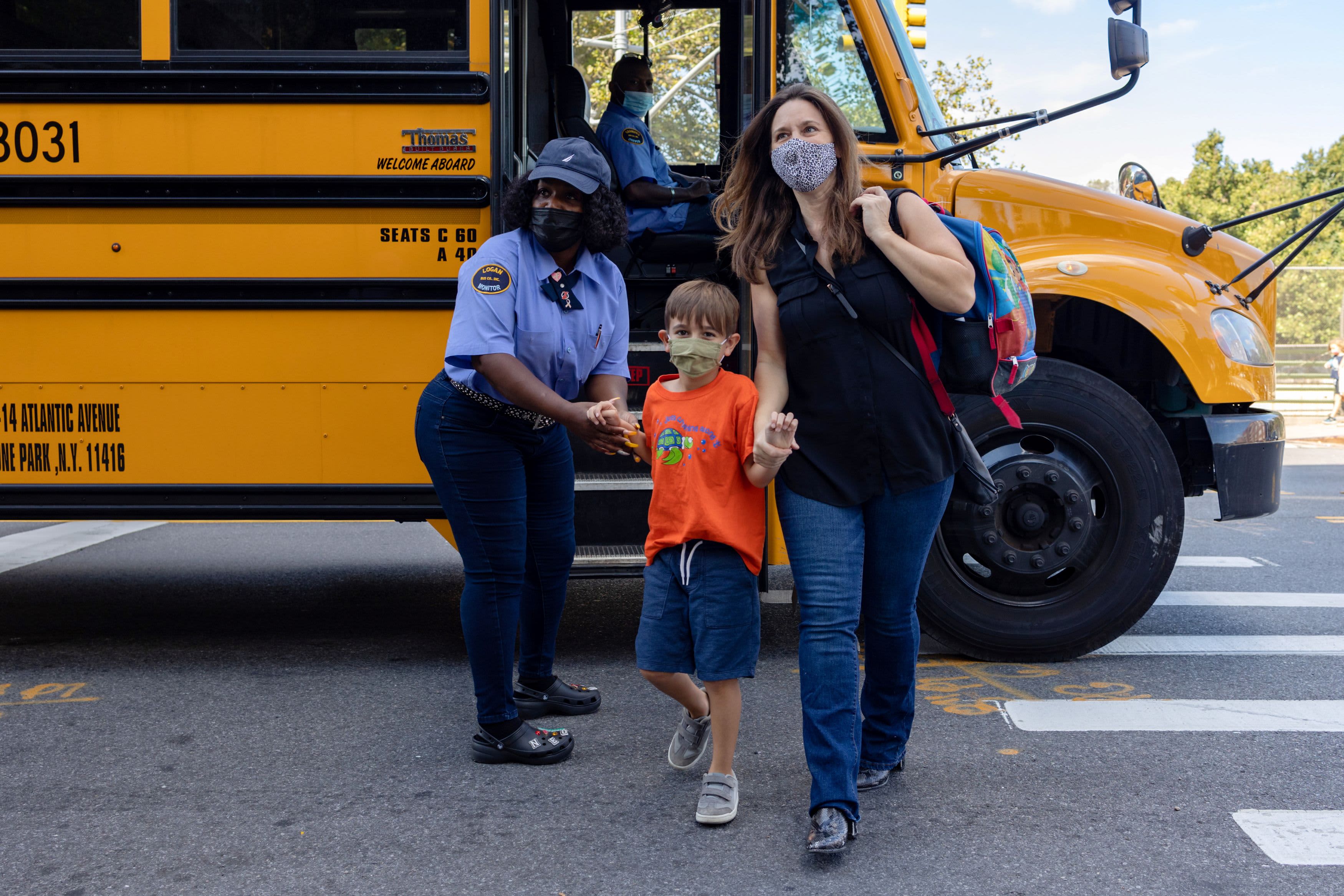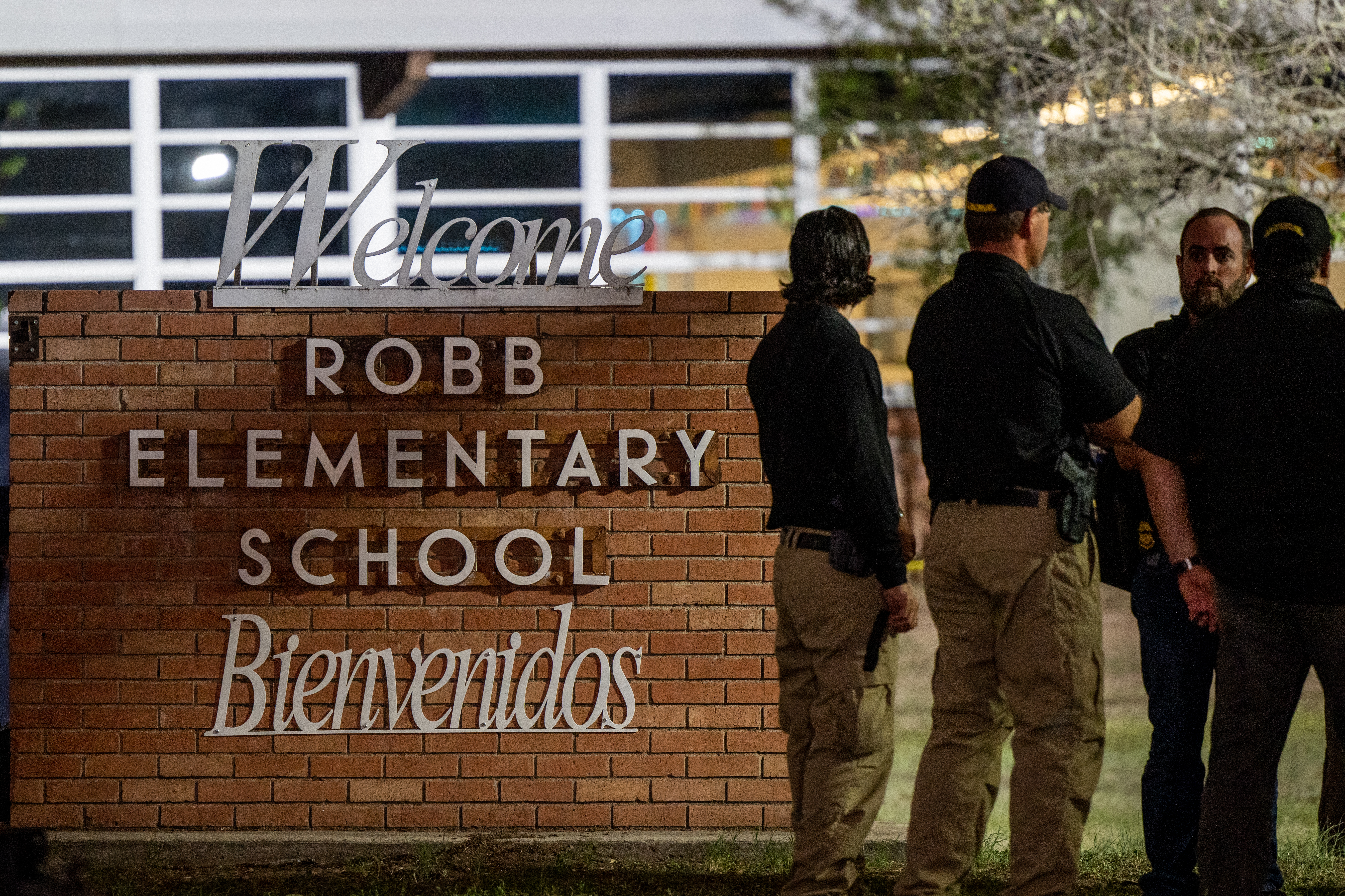The mayor of Uvalde on Friday disputed a new report that alleges missed chances to quickly end the massacre at a Texas elementary school, again reflecting the lack of definitive answers about the slow law enforcement response to one of the deadliest classroom shootings in U.S. history.
Mayor Don McLaughlin said no Uvalde police officer saw the gunman outside Robb Elementary School before he went inside and that none of them had an opportunity to fire on the shooter. His comments contradict a critique of the decision-making by law enforcement that was released this week by tactical response experts at Texas State University.
The differing accounts and public rebuke of the report reiterated how, more than six weeks after the May 24 shooting, questions remain about how and why police armed with rifles and bulletproof shields waited more than an hour before confronting the gunman in a fourth-grade classroom where 21 people were killed, including 19 children.
It also widened a rift between Uvalde officials and the state, particularly the Texas Department of Public Safety, which had troopers on the scene and has directed much of the blame to the local school district police chief. The new report was requested by DPS, and the findings were similar to the narrative that leaders of the state police force have previously given publicly.
Get top local stories in Southern California delivered to you every morning. Sign up for NBC LA's News Headlines newsletter.
“There were dozens of DPS troopers on-site by the time of the breach in the classroom,” McLaughlin said in a statement.
Representatives of the Department of Public Safety did not immediately respond to requests for comment.
It is not the first time McLaughlin has lashed out at the agency. He has previously accused DPS of publicly giving an incomplete and one-sided account at the same time he says local officials have been instructed to not divulge information while the investigation is ongoing.
Col. Steve McCraw, who heads DPS, has largely blamed the inaction by law enforcement on Uvalde School District Police Chief Pete Arredondo, describing him as the incident commander during the shooting.
Arredondo has told the Texas Tribune that he did not believe he was in charge of the scene. He has kept a low profile since the shooting and resigned last week from his elected position on the City Council.
The report this week was drafted by the university’s Advanced Law Enforcement Rapid Response Training program. Authors of the 26-page report said they were contacted by DPS shortly after the shooting to assess the law enforcement response and that they had an approximately one-hour briefing led by an “investigating officer” who is not named.
One of the report’s most striking details was how a Uvalde police officer, armed with a rifle, watched the gunman walk toward the campus but did not fire while waiting for permission from a supervisor to shoot. The supervisor “either did not hear or responded too late,” according to the report.
McLaughlin said no Uvalde officer had a chance to shoot the gunman before entering the school, and that while an officer did see someone outside, the officer could not tell who it was.
“Ultimately, it was a coach with children on the playground, not the shooter,” McLaughlin said.
Pete Blair, the executive director of the training center that published the report, did not immediately respond to an email seeking comment Friday.
A separate report on the shooting is being compiled by Texas legislators who have spent weeks interviewing more than 20 witnesses and first responders behind closed doors. On Monday, the committee is expected to hear for the first time from the Uvalde County sheriff after lawmakers sent him a letter this week trying to compel his testimony.




